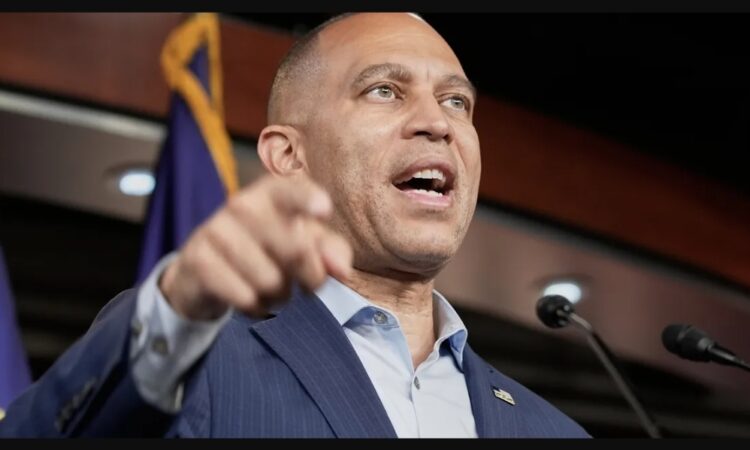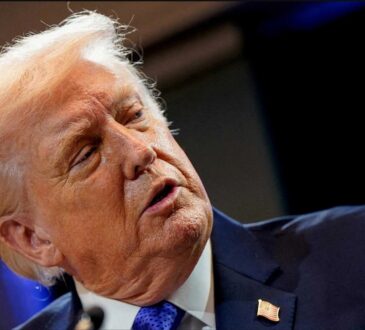
House Minority Leader Hakeem Jeffries made a historic stand against President Donald Trump’s sweeping legislative package by delivering the longest speech in U.S. House history.
Speaking for 8 hours and 44 minutes, Jeffries used a procedural privilege known as the “magic minute,” which allows party leaders to speak without time constraints. Starting just before 5 a.m. and finishing after 1:30 p.m., Jeffries used every second to express his deep opposition to a bill he described as cruel, dangerous, and a threat to the American social contract.
From the outset, Jeffries was clear about his intention to take his “sweet time” in defense of what he called the interests of everyday Americans. He aimed to delay the vote and draw public attention to the bill’s sweeping implications, which include severe cuts to essential programs such as Medicaid, SNAP, and housing support—measures the Congressional Budget Office warned would leave millions uninsured and deepen inequality.
Jeffries didn’t mince words. He portrayed the bill not just as a flawed piece of legislation, but as an ideological weapon aimed at vulnerable Americans. He blasted Republicans for pursuing what he called an “all-out assault” on immigrant families by increasing funding to Immigration and Customs Enforcement to fulfill Trump’s aggressive deportation agenda. He painted the bill as the latest in a pattern of policy cruelty and political overreach.
Throughout the speech, Jeffries highlighted how individual districts, including those represented by Republicans like Elise Stefanik, would be directly harmed. He cited statistics about how many constituents would lose access to health care and other critical services. This wasn’t just a national protest—it was a local one, grounded in the lives of real people who, according to Jeffries, would suffer real consequences.
His remarks were not limited to policy critique. He invoked moral and historical language, quoting civil rights leaders like John Lewis and Dr. Martin Luther King Jr., and praised the Founding Fathers for instituting midterm elections—a mechanism he framed as a lifeline for American democracy. In doing so, he positioned his marathon speech as not just a procedural maneuver, but a moral stand.
Meanwhile, the Democratic Party used the delay strategically. Lawmakers and activists flooded social media with calls for citizens to contact their representatives, hoping to stall or sink the bill. They painted it as a last stand for the social safety net, warning that if passed, it would represent a dramatic rollback of decades of progress.
Jeffries’ speech came in response to an atmosphere of triumph on the Republican side. Trump and his adviser Stephen Miller characterized the bill as a civilization-defining achievement, with Miller declaring it a moment future generations would remember as either salvation or failure. That kind of apocalyptic framing—common in Trump-era rhetoric—was met with fierce resistance from Jeffries, who argued that true patriotism meant protecting the most vulnerable, not sacrificing them.
The bill, likely to be signed by Trump in a high-profile ceremony soon, is a cornerstone of his administration’s second-term legislative strategy. It’s filled with policy reversals, budget slashes, and immigration crackdowns that Trump loyalists celebrate as long-overdue corrections. But to Jeffries and fellow Democrats, it’s an existential threat to democratic values and economic fairness.
In the final minutes of his record-breaking address, Jeffries made a call to action, framing the fight ahead as “Project 2026”—a clear counter to Republicans’ “Project 2025,” which aims to transform the federal government along far-right ideological lines. He concluded not with exhaustion, but with resolve, declaring that Democrats would “press on until victory is won.”
His final words, “I yield back,” closed one of the most consequential protest speeches in recent congressional memory—not just because of its length, but because of its timing, its urgency, and its deep moral conviction.




